Some managers seem to be perpetually suffering with intense delusions of grandeur, that culminate with them truly believing the idea that they are entitled to their employee’s free time. The concept that most people engage with work as a thing that starts and, mercifully, ends at a set time is almost alien to them.
A worker shared their annoying experience with a boss who demanded they clock in early every day despite them always showing up on time. We reached out to the employee in the story via private message and will update the article when they get back to us.
Some bosses think it’s ok to ask employees to come in early or stay late
Image credits: LightFieldStudios (not the actual photo)
But one worker, despite always being on time, was told to clock in 15 minutes early every day
Image credits: Vojtech Okenka (not the actual photo)
Image credits: sydneyghibli
People should not be expected to do more than they signed up for
While fifteen minutes might not seem like a long time, it still adds up to five hours a month, assuming the employee works five days a week. Five whole hours of unpaid time, in the morning no less. Maybe this isn’t a dealbreaker for some, but it’s worth considering if it’s a good idea to let one’s manager dictate these sorts of things.
If a manager, feeling empowered for the pettiest reasons, can ask people to be on the clock an extra fifteen minutes, why stop there? Why not make it twenty, thirty or even more. Without some pushback, those five hours a month can multiply quite quickly. After all, if a manager is willing to exceed an agreed upon and binding contract by a bit, employee pushback is the only thing stopping them from doing more.
Of course, the employee in question could just quit, and in a perfect world, that’s what they would do at the first signs of manager overreach. Since we all live in an imperfect world, this worker did the next best thing, protest. If every employee refuses to back down, managers become a lot less able to push folks around.
Image credits: Pixabay (not the actual photo)
While some jobs need a bit of preparation, this was not the case here
It’s important to note that the employee here was by no means causing issues. They were on time and the manager seems to have had no other complaints. Similarly, they themselves stated that they didn’t actually need to be there to “set up” in any way. Some might argue that it’s impossible, but if it really was an issue, it would have come up earlier in this employee’s work.
Similarly, there could be a risk that, by leaving no room for error, like traffic, some difficulties finding one’s keys in the morning or any other issue. This would mean that, inevitably, they show up late. However, again, this employee has not had punctuality issues in the past and, importantly, “spending” hours every month on the off chance that you might be twenty minutes late one day or another is overkill.
Image credits: Marc Mueller (not the actual photo)
Overbearing managers tend to leave workers annoyed and burnt out
All in all, the real issue is manager overreach. If this worker was actually causing issues, this request would be in order. However, it’s simply not the case. Indeed, the manager’s reaction, or, in reality, overreaction to the pushback should be a significant red flag for anyone. In general, when employees are asked about what they don’t like at a job, bad management is often a very dominating answer.
There are all sorts of reasons why a manager might decide to not manage but terrorize their workers, from poor people skills and a lack of knowledge of how things work to some sort of externalized insecurities. The results, unfortunately, tend to be the same, unproductive, scared and burnt out employees.
Image credits: CoWomen (not the actual photo)
People wanted some more details from the employee
Some also shared similar stories
Poll Question
Thanks! Check out the results:
Yeah, no. You need to be waiting on customers at 9am on the dot, not strolling in at 9 am. That means coat off, lunch in the fridge, coffee poured and logged in. Even if you are just logging in, it’s taking more than 20 seconds to get settled and ready to work. You don’t need to be 15 min early but you do need to be ready to work when work starts.
Wrong. If they were on time they could immediately help the customer, and simply have their time adjusted. On time is on time. Not up for discussion. Be gone.
Load More Replies...It takes longer than 40 seconds to take your jacket off, put your lunch in the fridge and log into your computer - unless the coat rack and refrigerator are literally within arms distance of your desk. If your start time is 9am, it means you are at your desk, logged in and ready to take your first customer/call etc AT 9am. Not walking in the door at 9am.
The logging in part is legally work time, I believe. Coat and lunch may not be. I know there have been court cases about where the line is drawn.
Load More Replies...I'm usually at my work place 15-20 minutes early. I don't clock in or start working until my scheduled time. There's a policy about not clocking in more than 7 minutes before or clocking out more than 7 minutes after your scheduled shift. I'm not working early or unpaid for no good reason
Yeah, no. You need to be waiting on customers at 9am on the dot, not strolling in at 9 am. That means coat off, lunch in the fridge, coffee poured and logged in. Even if you are just logging in, it’s taking more than 20 seconds to get settled and ready to work. You don’t need to be 15 min early but you do need to be ready to work when work starts.
Wrong. If they were on time they could immediately help the customer, and simply have their time adjusted. On time is on time. Not up for discussion. Be gone.
Load More Replies...It takes longer than 40 seconds to take your jacket off, put your lunch in the fridge and log into your computer - unless the coat rack and refrigerator are literally within arms distance of your desk. If your start time is 9am, it means you are at your desk, logged in and ready to take your first customer/call etc AT 9am. Not walking in the door at 9am.
The logging in part is legally work time, I believe. Coat and lunch may not be. I know there have been court cases about where the line is drawn.
Load More Replies...I'm usually at my work place 15-20 minutes early. I don't clock in or start working until my scheduled time. There's a policy about not clocking in more than 7 minutes before or clocking out more than 7 minutes after your scheduled shift. I'm not working early or unpaid for no good reason

 Dark Mode
Dark Mode 

 No fees, cancel anytime
No fees, cancel anytime 


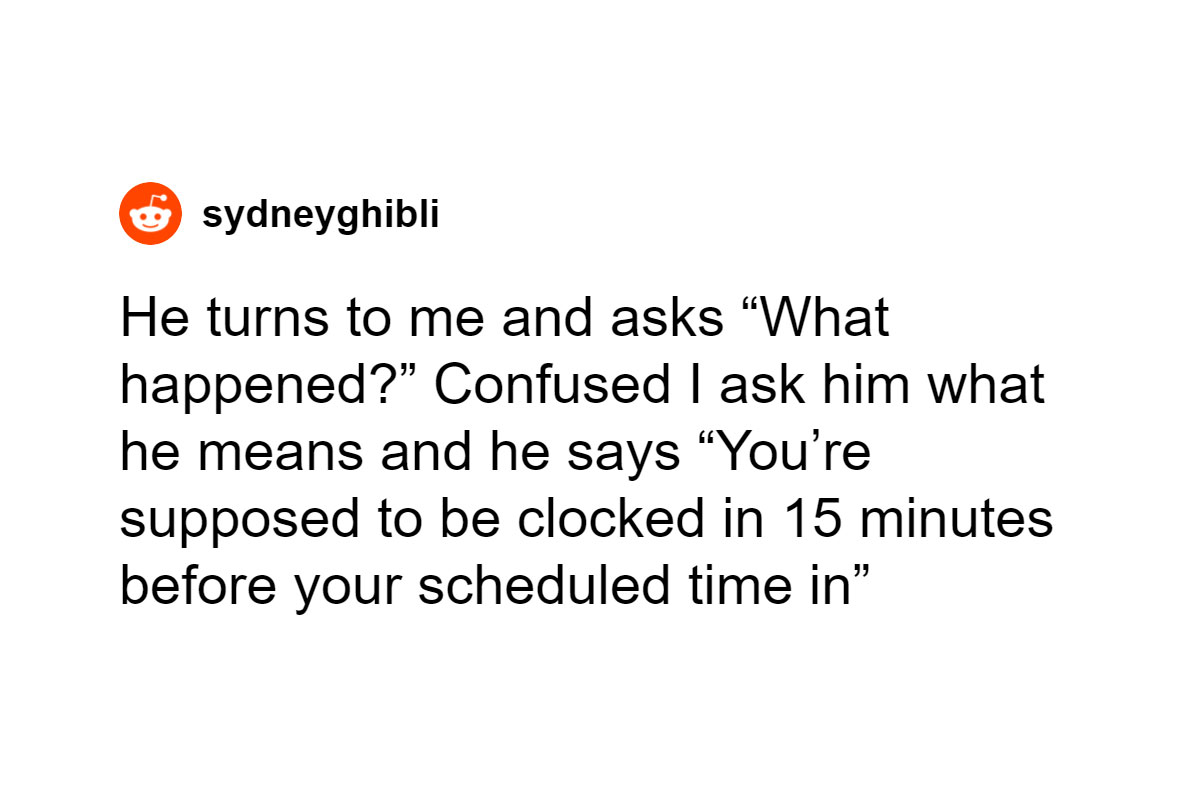

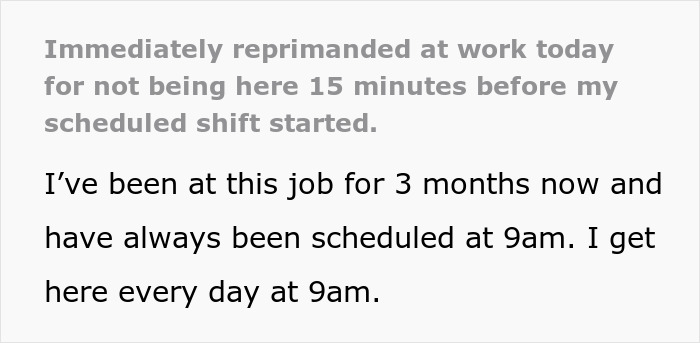
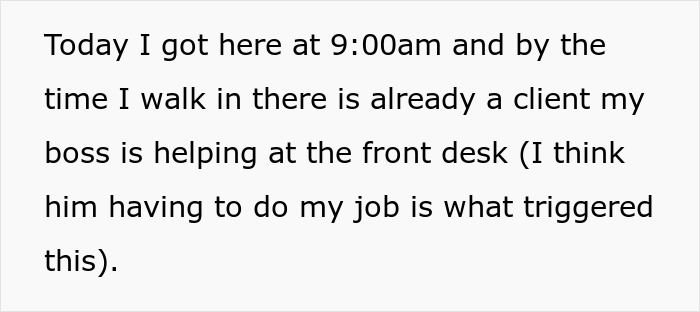
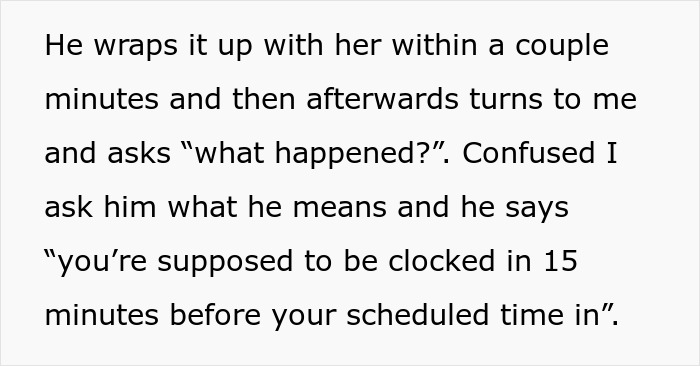
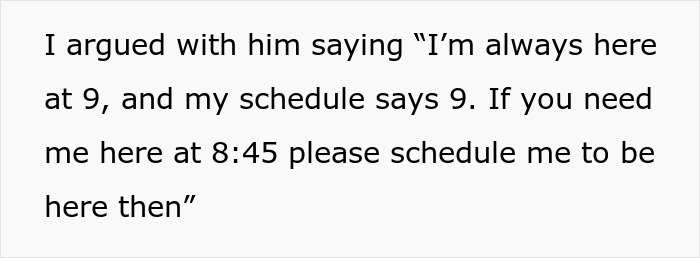



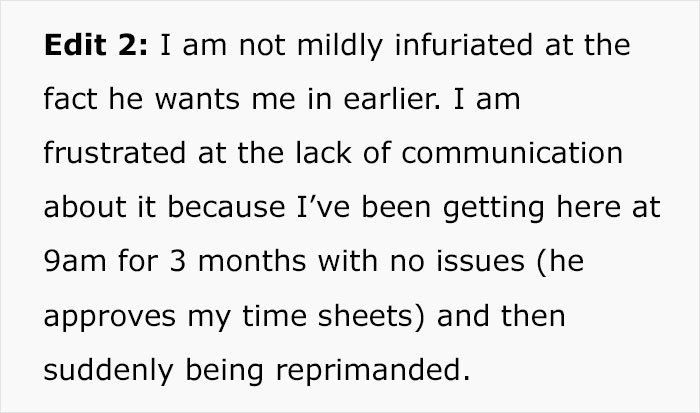
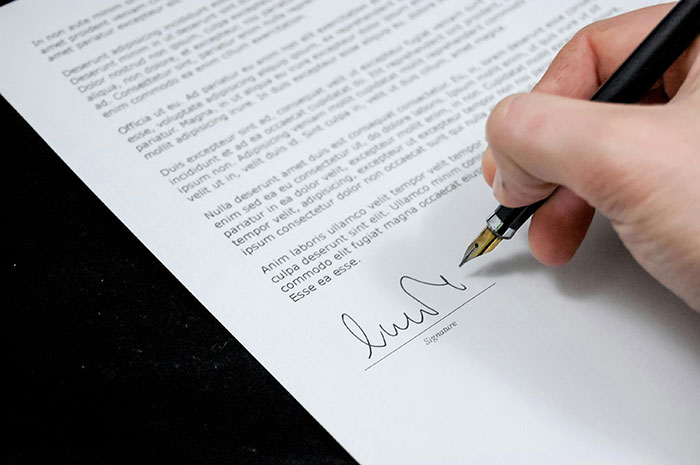


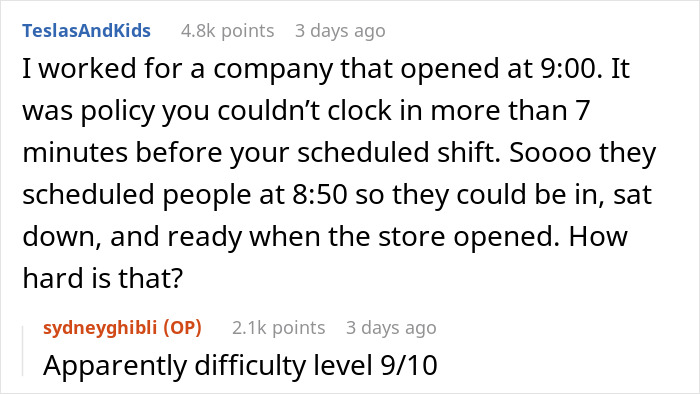
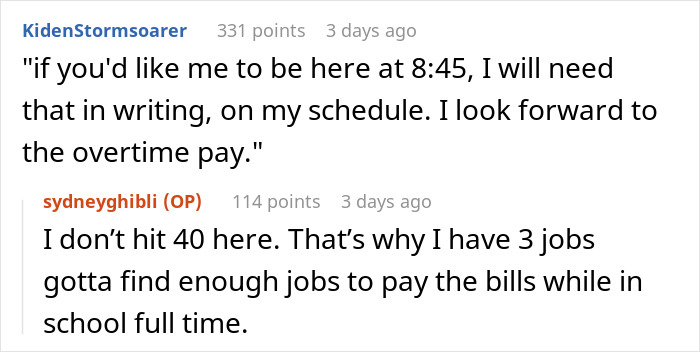
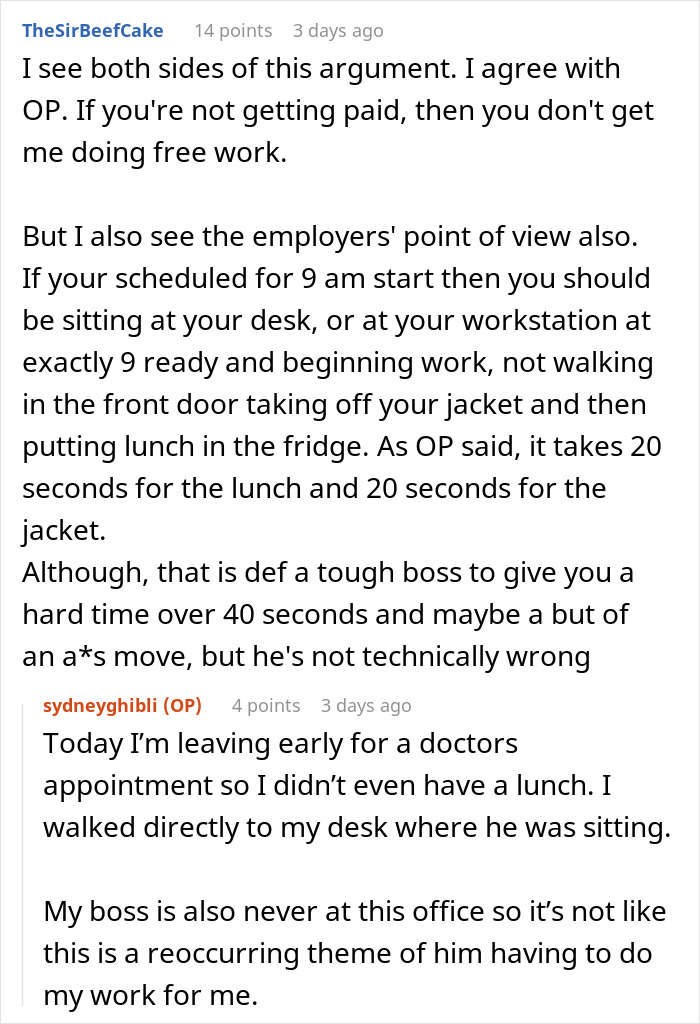
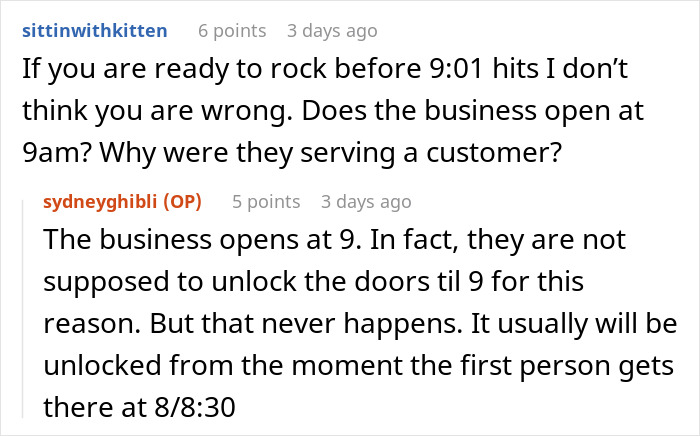
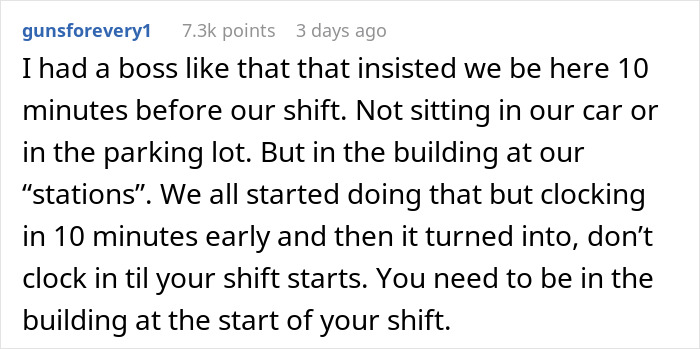
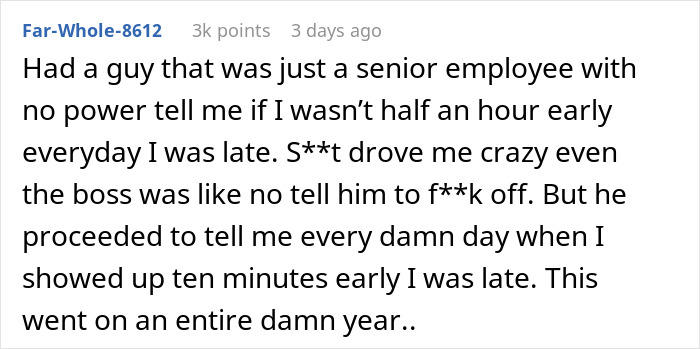
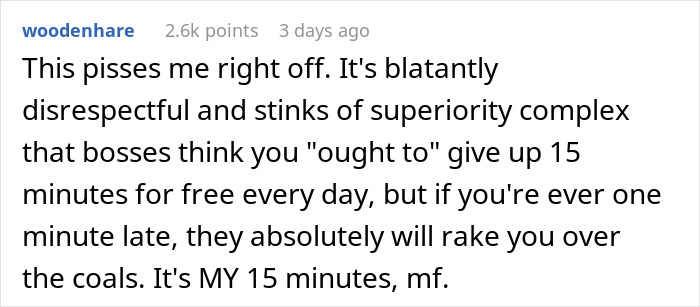


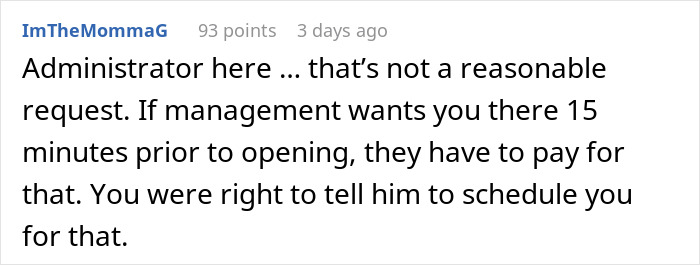
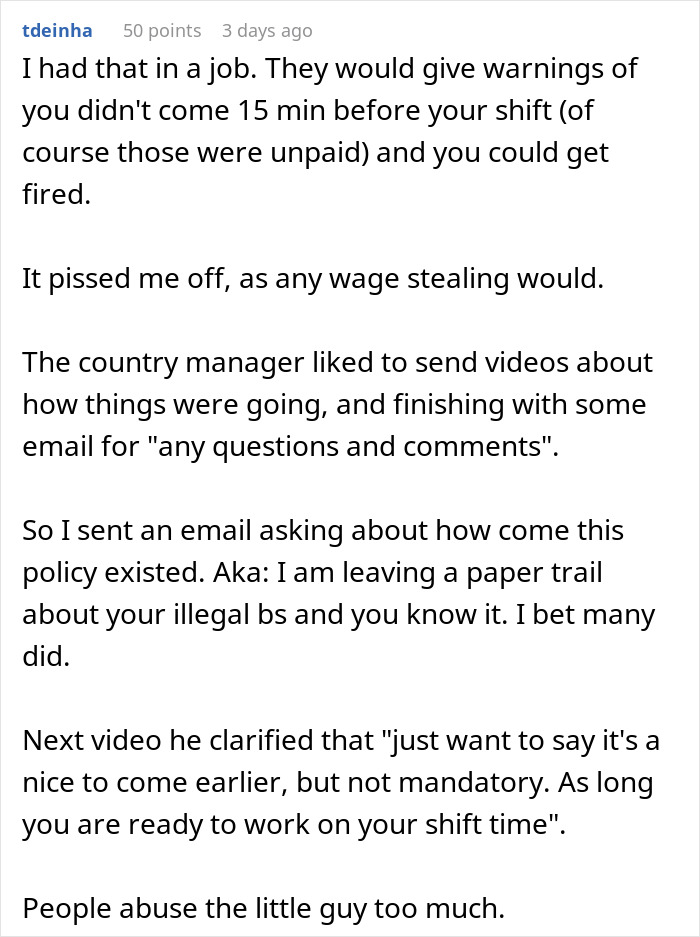
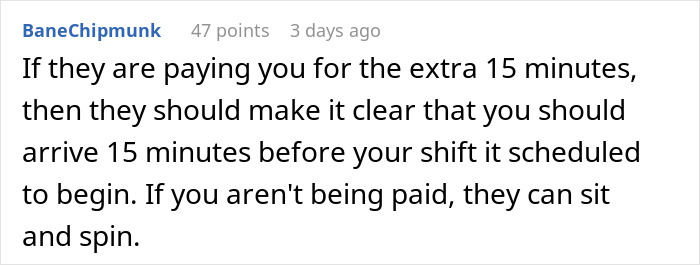
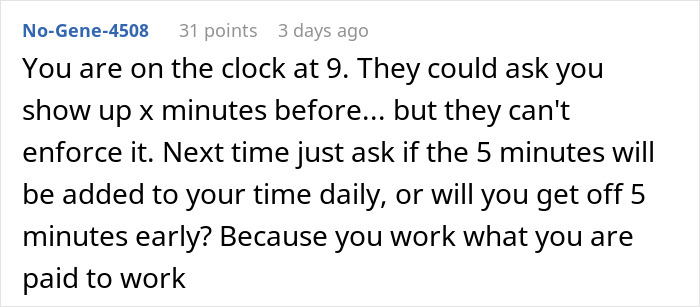
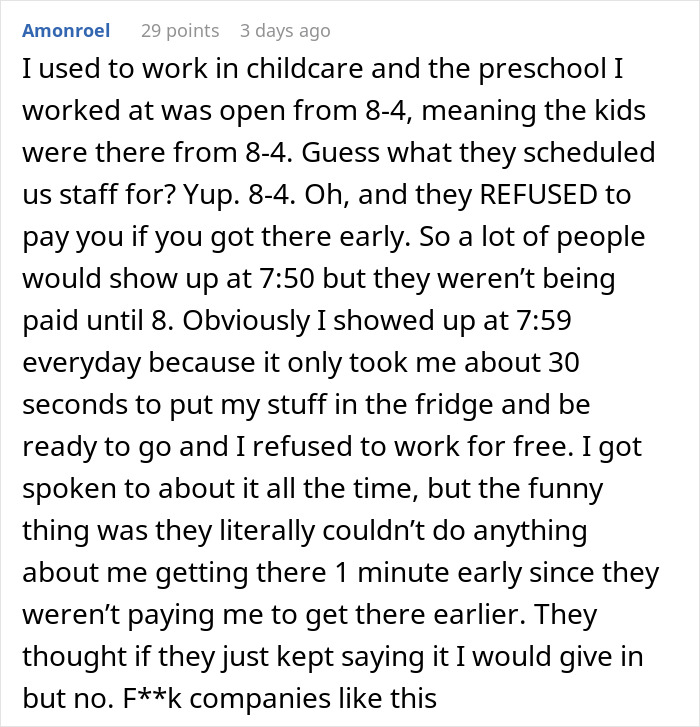





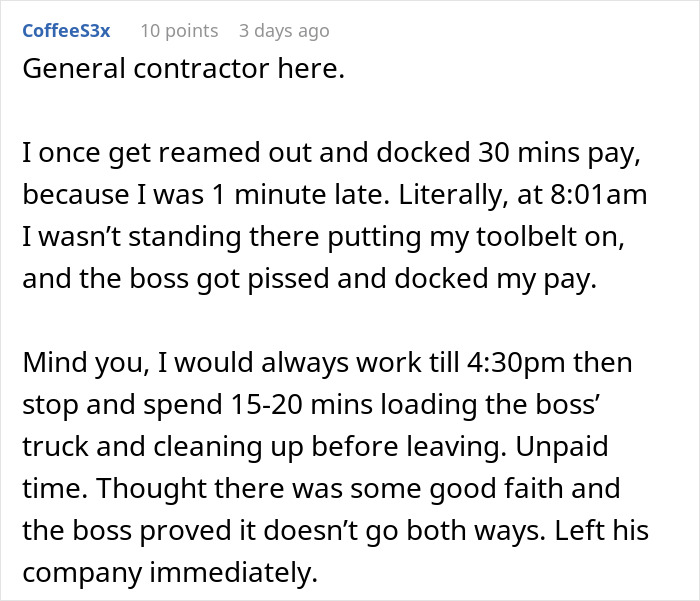
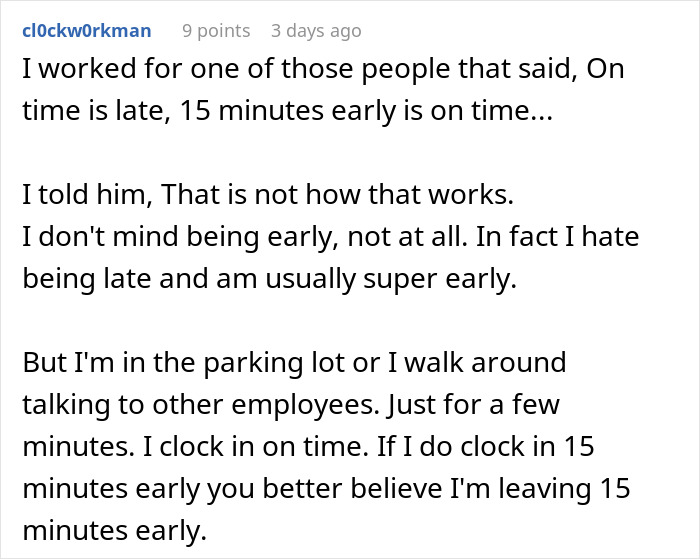
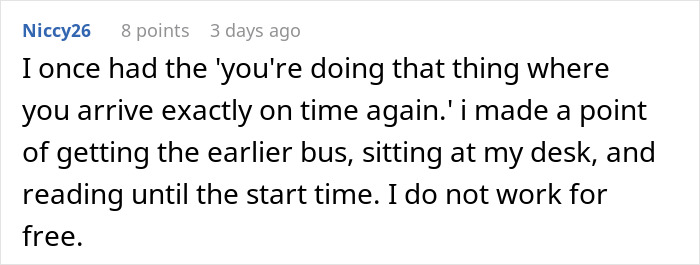
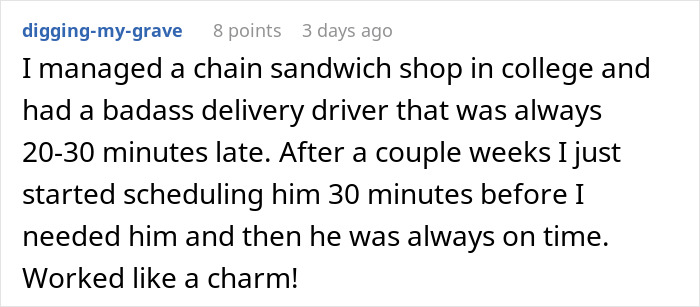



















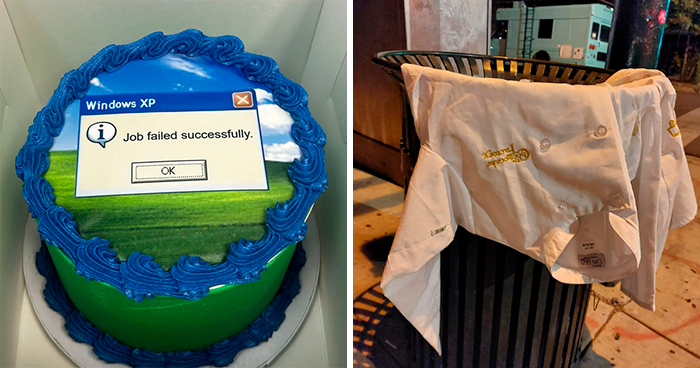




41
32